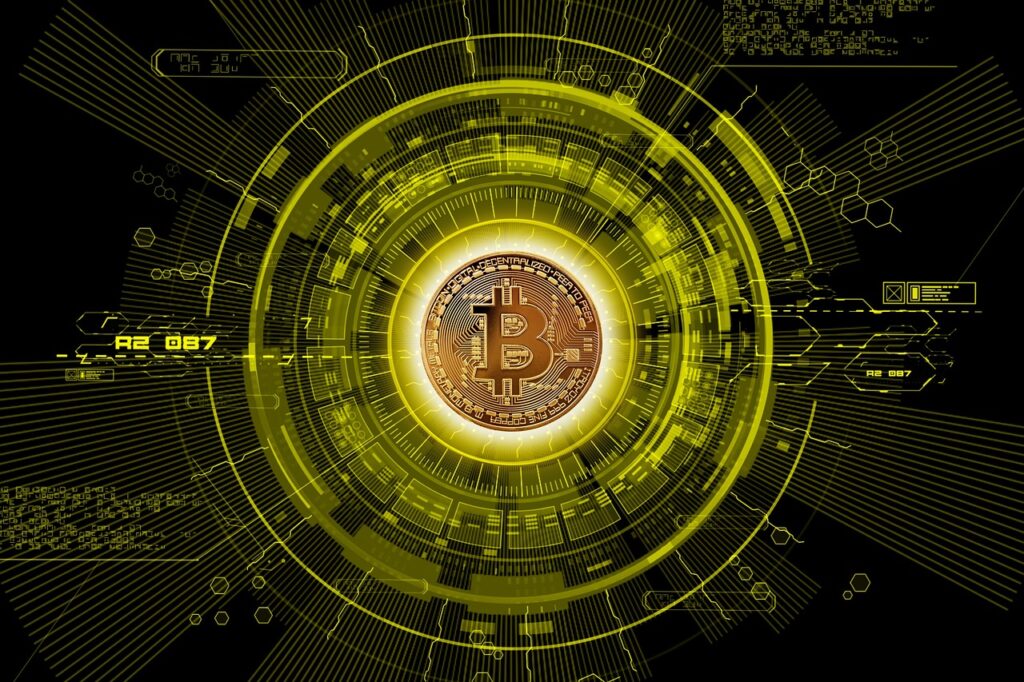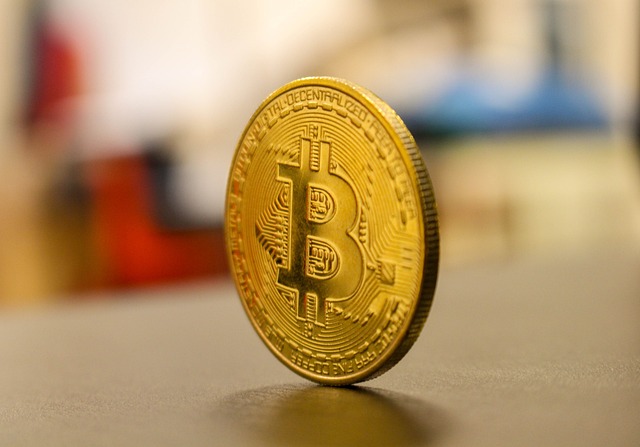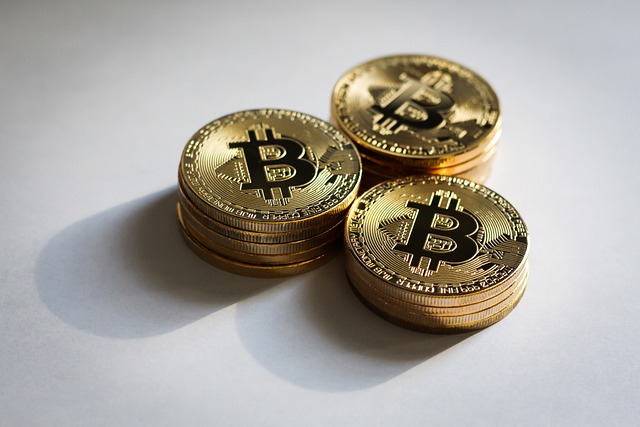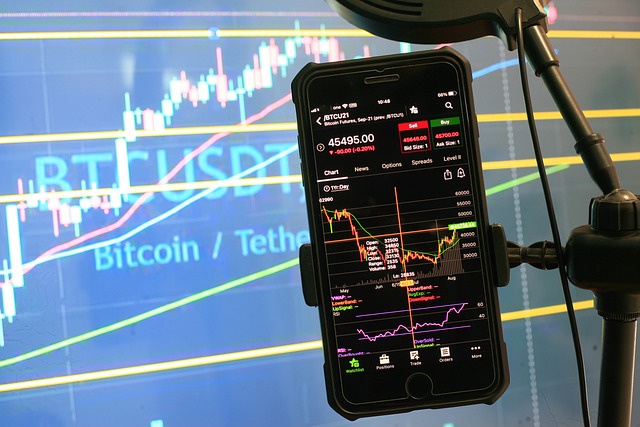DeFi’s Competitive Edge: Exploring Its Advantages
DeFi’s Competitive Edge: Exploring Its Advantages

What sets DeFi apart from traditional financial systems?
Decentralized Finance, or DeFi, has emerged as a game-changer in the world of financial systems. Unlike traditional finance, which relies heavily on centralized authorities such as banks and governments, DeFi operates on a blockchain network, making it decentralized and accessible to anyone with an internet connection. This fundamental difference transforms the way financial transactions are conducted, offering unique benefits and opportunities.
One key aspect that distinguishes DeFi from traditional finance is its openness and inclusivity. In traditional systems, individuals often face barriers to entry, such as minimum balance requirements or geographical restrictions. However, DeFi protocols welcome users from all walks of life, providing equal access to financial services and enabling individuals to participate in the global economy without any intermediaries. This inclusivity empowers those who were previously excluded from traditional financial systems and opens up new avenues for wealth creation and economic growth.
The potential for decentralized governance in DeFi platforms
Decentralized Finance (DeFi) platforms are revolutionizing the way financial systems operate by introducing the concept of decentralized governance. Unlike traditional financial institutions, where decision-making is centralized in the hands of a few individuals or entities, DeFi allows for collective decision-making through the use of decentralized autonomous organizations (DAOs). This enables participants in the DeFi ecosystem to have a say in the platform’s operations and development.
One of the key advantages of decentralized governance in DeFi platforms is the transparency and accountability it brings. In traditional financial systems, decisions are often opaque, and individuals have limited visibility into the inner workings of institutions. However, in DeFi platforms, decisions and proposals are visible and accessible to all participants, ensuring that the governance process remains transparent. This increased transparency not only builds trust among participants but also allows for better scrutiny and reduces the scope for manipulation or fraudulent activities. By enabling the community to participate in decision-making and holding platform developers and contributors accountable, decentralized governance in DeFi platforms promotes a more democratic and inclusive financial system.
How DeFi promotes financial inclusivity and accessibility
Decentralized Finance (DeFi) has emerged as a game-changer in the financial industry, with its primary aim of promoting financial inclusivity and accessibility for individuals across the globe. Unlike traditional financial systems that often require complex paperwork, extensive background checks, and high fees, DeFi platforms offer a more straightforward and user-friendly experience. With just a smartphone and an internet connection, anyone can access and participate in various DeFi protocols without facing the barriers that exist in traditional banking systems.
DeFi eliminates the need for intermediaries such as banks or other financial institutions, allowing individuals to take full control of their financial transactions and assets. By leveraging blockchain technology, DeFi platforms offer a decentralized and permissionless environment, wherein anyone can create a wallet, connect to a DeFi application, and start transacting immediately. This open nature of DeFi protocols ensures that financial services are not limited to a specific group or region, but instead, are available to everyone. Consequently, DeFi has the potential to empower the unbanked and underbanked populations, providing them with access to a wide range of financial services that were previously inaccessible.
Exploring the advantages of transparency in DeFi
Transparency is one of the key advantages that sets decentralized finance (DeFi) apart from traditional financial systems. In DeFi, all transactions and activities are recorded on a public blockchain, allowing anyone to view and verify them. This openness promotes trust and accountability, as it eliminates the need for intermediaries and centralized authorities to oversee and manage transactions. Through transparent smart contracts, users can assess the underlying code and understand the rules governing their interactions within the DeFi ecosystem. This accessibility to information gives individuals greater control over their financial activities and reduces the risk of fraudulent or malicious behavior.
Additionally, transparency in DeFi enables users to track the flow of funds more easily.

The role of smart contracts in enhancing security in DeFi
Smart contracts play a crucial role in enhancing security within the DeFi ecosystem. Unlike traditional financial systems where trust is placed in intermediaries, DeFi relies on the underlying technology of blockchain to ensure transparency and security. By leveraging smart contracts, DeFi protocols are able to automate and enforce the terms of transactions without the need for intermediaries.
One of the key advantages of smart contracts is their ability to eliminate the potential for human error or fraud. In traditional financial systems, there is always a risk that a middleman may act in their own self-interest, compromising the security of transactions. With smart contracts, the terms of agreements are encoded within the blockchain, ensuring that transactions are executed precisely as programmed. This eliminates the need to trust a single party and reduces the risk of fraudulent activities. By providing a tamper-proof and immutable record of transactions, smart contracts enhance the overall security of DeFi protocols.
How DeFi enables peer-to-peer lending and borrowing
Decentralized Finance, also known as DeFi, has revolutionized the way individuals can lend and borrow funds without the need for intermediaries. Through the use of blockchain technology and smart contracts, DeFi platforms enable peer-to-peer lending and borrowing in a simple and efficient manner.
In traditional financial systems, individuals often have to rely on banks or other financial institutions to facilitate lending and borrowing. This can be a time-consuming process that involves extensive paperwork, credit checks, and high interest rates. However, in the world of DeFi, all of this is simplified. Users can directly connect with each other through decentralized lending platforms, eliminating the need for intermediaries. This not only speeds up the lending and borrowing process but also reduces costs and provides individuals with more control over their financial transactions. By enabling peer-to-peer lending and borrowing, DeFi empowers individuals to have greater financial freedom and access to capital.
The efficiency and speed of transactions in DeFi
Decentralized Finance (DeFi) has revolutionized the way transactions are carried out, providing an efficient and speedy alternative to traditional financial systems. Unlike traditional banking systems, where transactions can take several days to be processed, DeFi transactions are executed almost instantly. This is because DeFi platforms operate on blockchain technology, allowing for real-time verification and settlement of transactions. As a result, users can transfer funds, make purchases, and engage in various financial activities without having to endure the long waiting periods.
The efficiency and speed of transactions in DeFi not only benefit individuals but also have significant implications for businesses. In today’s fast-paced world, time is of the essence, especially in the context of financial transactions. DeFi enables businesses to streamline their operations, as they can quickly and securely process payments, manage supply chains, and execute complex financial agreements. Moreover, the absence of intermediaries in DeFi platforms eliminates the need for tedious paperwork and reduces the chance of errors or delays. As a result, businesses can operate more efficiently, meeting customer demands promptly and staying ahead of the competition.
The potential for higher returns and yields in DeFi protocols
When it comes to the world of finance, investors are always looking for opportunities to maximize their returns. Traditional financial systems often limit the potential for high returns and yields. However, with the emergence of decentralized finance (DeFi) protocols, there is an exciting avenue for investors to explore.
DeFi protocols operate on blockchain technology, allowing for seamless and trustless transactions. By cutting out intermediaries and enabling direct peer-to-peer interactions, DeFi opens up a world of possibilities for higher returns and yields. These protocols offer a wide range of financial products, such as lending, borrowing, and yield farming, which attract investors with the promise of attractive returns. Moreover, with the ability to leverage various financial instruments and assets, investors can take advantage of market opportunities like never before. The potential for higher returns and yields in DeFi protocols is indeed a key factor driving the enthusiasm around this emerging financial ecosystem.
DeFi’s ability to eliminate intermediaries and reduce costs
DeFi, or decentralized finance, has gained significant attention in recent years due to its ability to disrupt traditional financial systems. One of the key advantages of DeFi is its potential to eliminate intermediaries and reduce costs. In traditional financial systems, intermediaries such as banks, brokers, and other third-party institutions play a crucial role in facilitating transactions and managing assets. However, these intermediaries often come with high fees and long processing times.
With DeFi, the need for intermediaries is minimized as the system operates on a peer-to-peer basis.

The challenges and future prospects of DeFi as a competitive alternative
While decentralized finance (DeFi) has gained significant traction and popularity in recent years, it is important to acknowledge the challenges it faces as a competitive alternative to traditional financial systems.

Another challenge DeFi faces is the issue of security. As DeFi platforms operate on decentralized networks, they are vulnerable to hacking and smart contract exploits. These incidents can result in the loss of funds and erode trust in the system. Furthermore, the lack of regulatory oversight poses a challenge for DeFi, as it may deter some individuals and institutions from fully embracing decentralized finance.
Looking ahead, the future prospects of DeFi remain promising. As technology continues to advance and user-friendly interfaces are developed, the accessibility and user experience of DeFi platforms are expected to improve. Additionally, with more regulatory frameworks being developed to address security concerns, institutional investors may become more comfortable entering the DeFi space, further fueling its growth. Overall, while there are certainly challenges to overcome, the potential for DeFi to become a viable and competitive alternative to traditional finance is significant.
What is DeFi and how does it differ from traditional financial systems?
DeFi, short for decentralized finance, is a system that operates on blockchain technology, allowing users to access financial services without the need for intermediaries like banks. Unlike traditional financial systems, DeFi is open, transparent, and operates on a peer-to-peer basis.
How does DeFi promote financial inclusivity and accessibility?
DeFi platforms enable anyone with an internet connection to access financial services, regardless of their geographical location, income level, or background. This inclusivity is achieved by removing barriers and providing equal opportunities for individuals who are unbanked or underbanked.
What advantages does transparency offer in DeFi platforms?
Transparency is a key feature of DeFi as all transactions and records are stored on a public blockchain. This ensures that anyone can audit and verify the accuracy of transactions, reducing the risk of fraud and providing greater trust in the system.
How do smart contracts enhance security in DeFi?
Smart contracts are self-executing contracts with predefined rules encoded on the blockchain. They eliminate the need for intermediaries and ensure that transactions are only executed when specific conditions are met. This adds an extra layer of security and reduces the risk of human error or manipulation.
Can individuals engage in peer-to-peer lending and borrowing through DeFi?
Absolutely! DeFi platforms enable individuals to lend or borrow funds directly from other users without the need for a financial institution. This eliminates the need for a middleman and allows for more efficient and cost-effective lending and borrowing processes.
Are transactions in DeFi platforms efficient and fast?
Yes, transactions in DeFi platforms are typically faster and more efficient compared to traditional financial systems. Since they operate on blockchain technology, transactions can be executed quickly without the need for manual verification or intermediaries.
Does DeFi offer the potential for higher returns and yields?
Yes, DeFi protocols often provide higher returns and yields compared to traditional financial systems. This is because they eliminate intermediaries, reducing costs, and allowing users to directly benefit from the returns generated by the platform.
How does DeFi eliminate intermediaries and reduce costs?
DeFi platforms remove the need for intermediaries like banks or brokers, as transactions are conducted directly between users. This reduces costs associated with fees, commissions, and other charges typically imposed by traditional financial institutions.
What are the challenges and future prospects of DeFi as a competitive alternative?
While DeFi shows great potential, there are challenges to overcome, such as scalability, regulatory concerns, and the risk of technical vulnerabilities. However, as the technology evolves, regulatory frameworks adapt, and more users embrace DeFi, its future prospects as a competitive alternative to traditional financial systems remain promising.
Todays Featured Product:
Buy, exchange and grow your crypto securely with a Ledger hardware wallet, combined with the Ledger Live app. It’s never been easier to keep your crypto safe and accessible. Buy direct from Ledger.com and get todays Special Offers Here.




